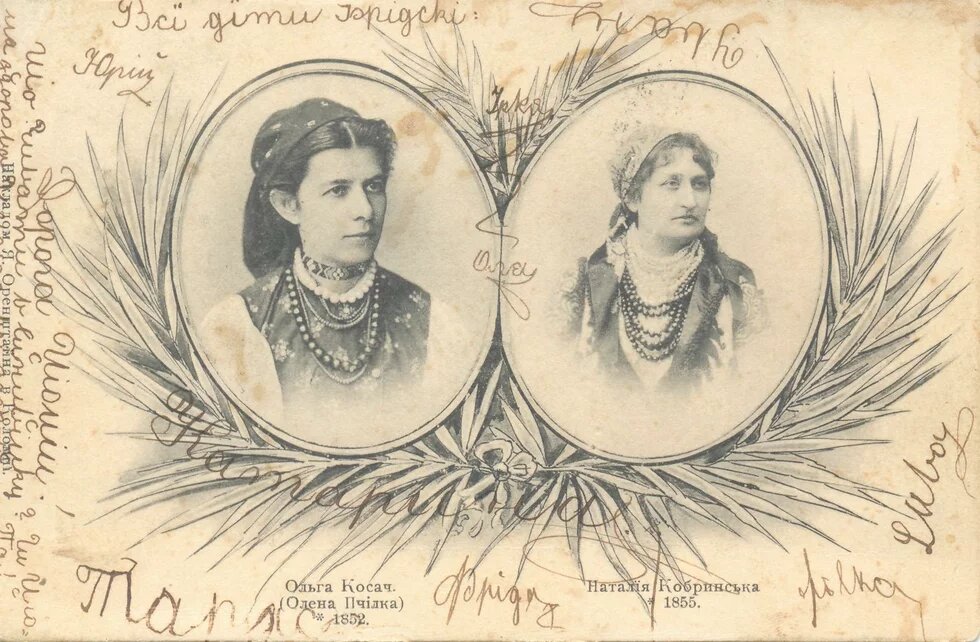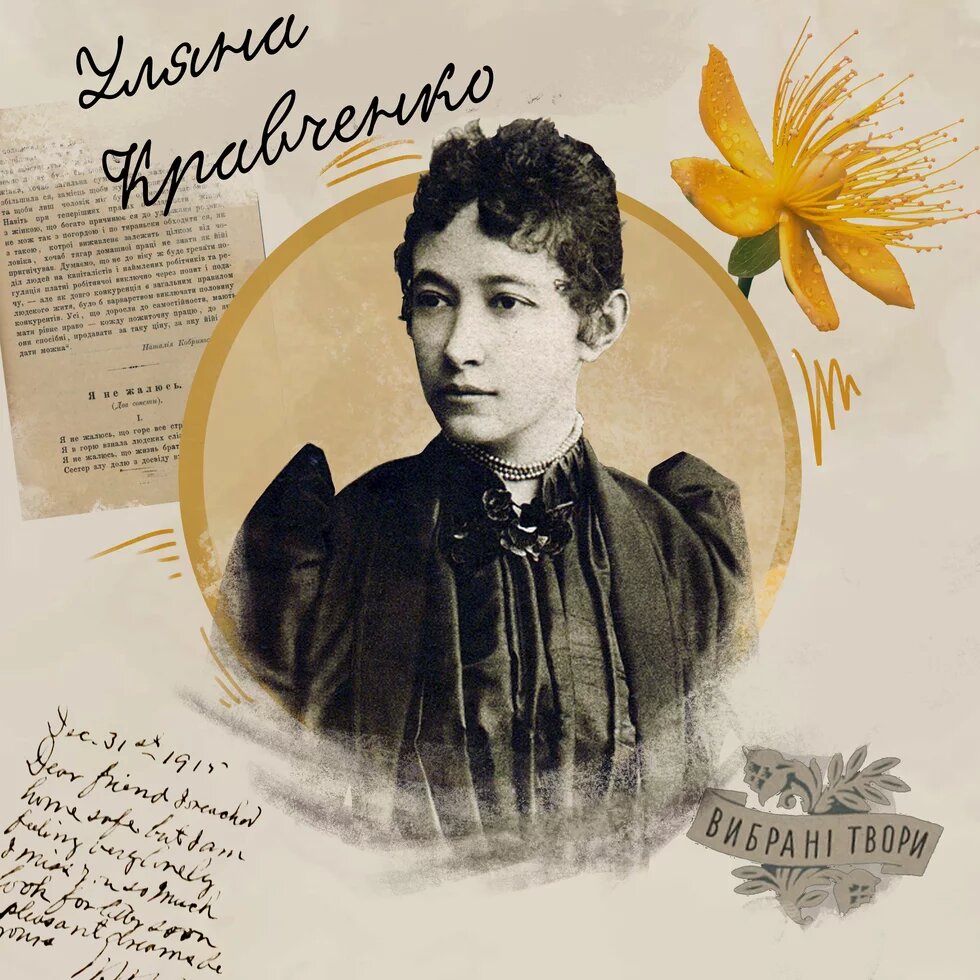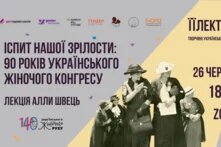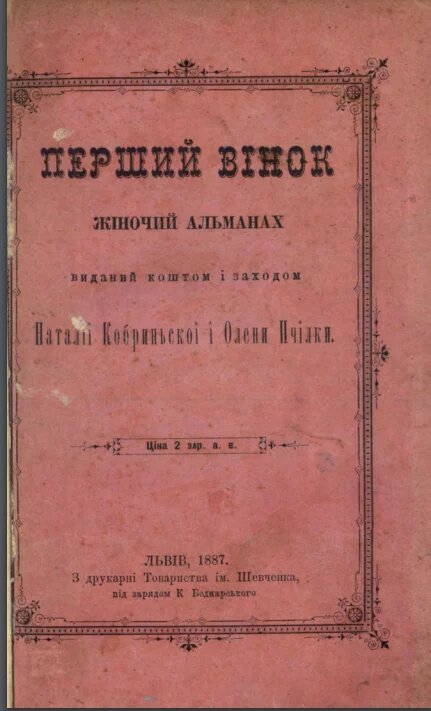
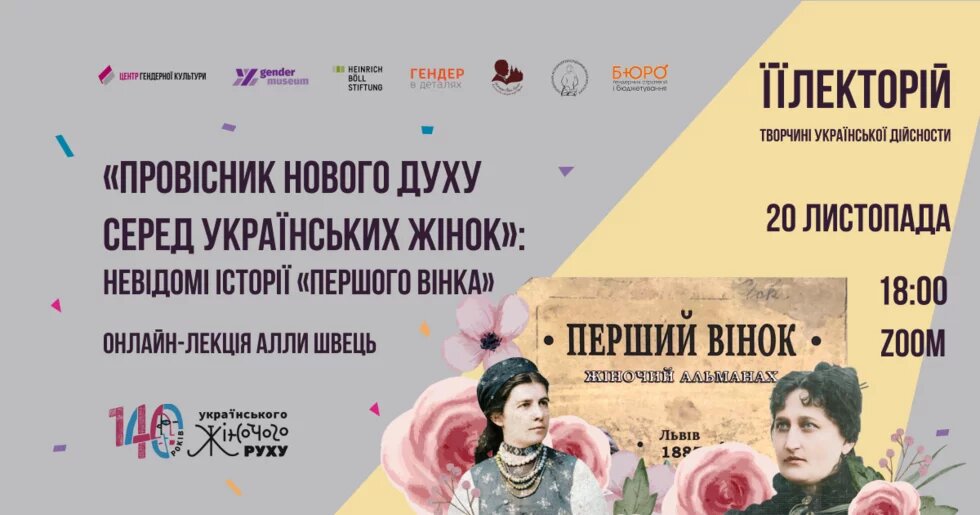
Pershyi Vinok (The First Wreath), published in Lviv in 1887, became an essential artefact in the history of the Ukrainian women's movement and a national cultural project. It united 17 writers from two parts of imperially divided Ukraine under the banner of literature. Pershyi Vinok (The First Wreath) is also a unique document in the lives of Ukrainian women who dared to speak out 140 years ago. It begins the tradition of women's writing and literary sisterhood.
The main message of Pershyi Vinok (The First Wreath) is declared in the foreword by Natalia Kobrynska: “In the name of our national unity”. This unity is manifested in the almanac in various ways: national and cultural, because, despite the imperial borders, Galician and Naddniprian managed to unite; social, because a noblewoman and a peasant, a teacher and a priestess, a student and a worker came together in the field of literature; age — because the publication presents different literary generations — from the 16-year-old Lesya Ukrainka to the 59-year-old Hanna Barvinok; family — because it contains entire cultural “families” — Ozarkevych, Kosach, Pavlyk, and Franko. Even though the anthology, according to its editorial policy, was composed of women's works, the preface contains another fundamental idea: gender unity: “We do not intend to alienate ourselves from men in the field of common aspirations, but want to be their spiritual allies”.
The complicated and lengthy publishing process of Pershyi Vinok (The First Wreath) contains many fascinating stories, intrigues, and behind-the-scenes happenings, even though the publication was a “compromise in all respects”. The most interesting vicissitudes of the almanac are the stories of how Olena Pchilka managed to win with the title Pershyi Vinok (The First Wreath); why the young author Olesia Bazhanska threatened to renounce the authorship of her works; how Franko rejected Kobrynska’s essay “Teacher” in favour of Ulyana Kravchenko’s “Memoirs of a Teacher”; why the Galician editor carefully concealed the signatures of the Pavlykivan sisters; how Olena Pchilka opposed the publication of Hanna Barvinok’s works; who prevented Olha Kobylianska from participating in Pershyi Vinok (The First Wreath); and why Olena Pchilka’s short story Tovaryshky, which Franko cut almost three times, became a “tragicomic” case in our literature.
Even though Pershyi Vinok (The First Wreath) did not gain the expected popularity at the time, nor was it a commercial success, it went down in the history of the literary process, the Ukrainian press, and the women's movement as an essential manifestation of the united intellectual progress of Ukrainian women, and echoed in the lives of each of its authors. For some, it was a space for a successful literary debut and paved the way for literature; for others, it was just a brief flash of new experience. For those who remained outside its content, it was a lifelong resentment. With the publication of Pershyi Vinok (The First Wreath), a whole generation of brilliant writers appeared on the literary horizon of Galicia and Greater Ukraine.
The translation from Ukrainian was created with the help of DeepL.
«Провісник нового духу серед українських жінок»: невідомі історії «Першого вінка» - Genderculture Space
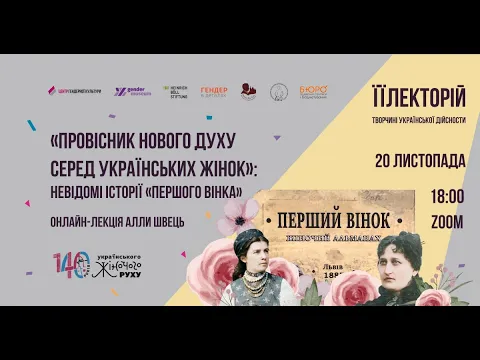 Watch on YouTube
Watch on YouTube
